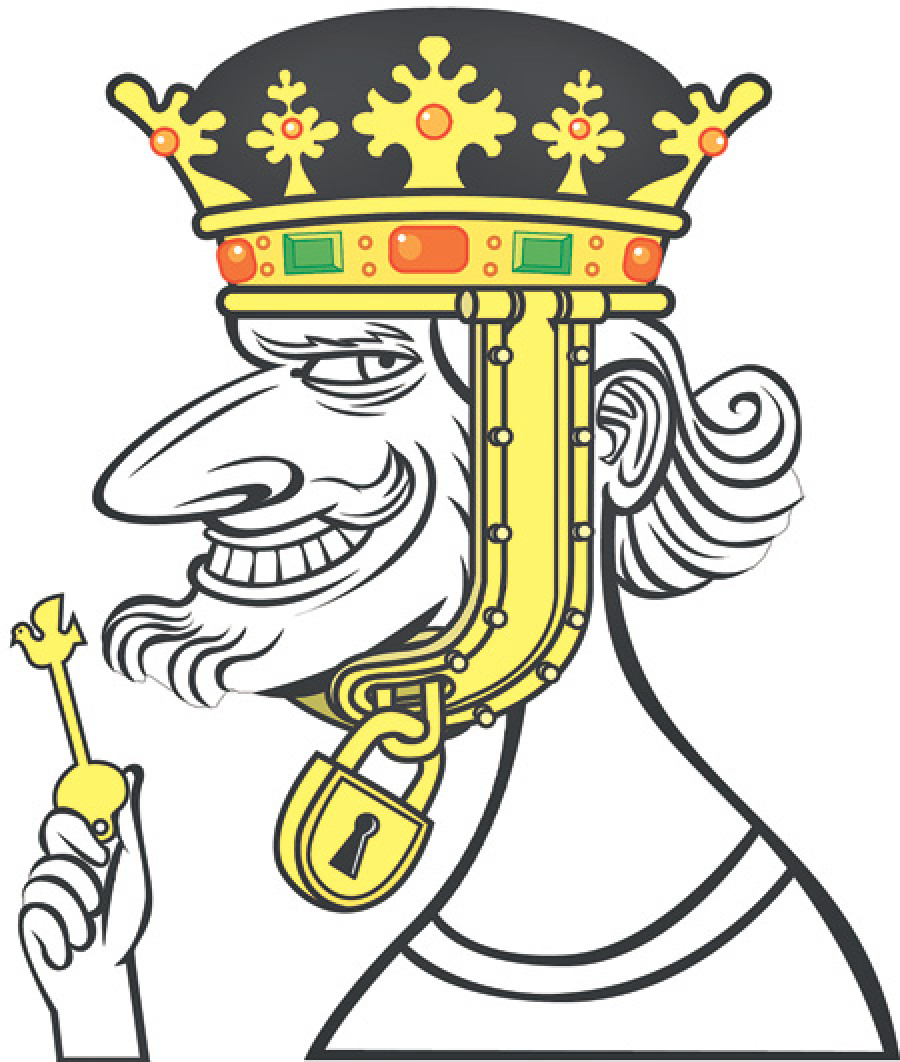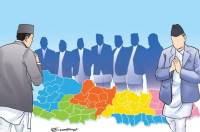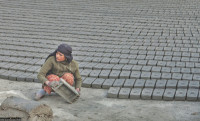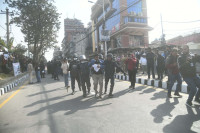Opinion
Seeking another path
There is a logic in the Hindu philosophy that if your possession is whole, it will neither be less nor more than the whole: even if you take the whole out from the whole, the remainder is still whole. Let me quote the Sanskrit couplet:
Khagendra N. Sharma
There is a logic in the Hindu philosophy that if your possession is whole, it will neither be less nor more than the whole: even if you take the whole out from the whole, the remainder is still whole. Let me quote the Sanskrit couplet:
This logic materialised in last week’s merger of the Rashtriya Prajatantra Party (RPP) and the Rashtriya Prajatantra Party-Nepal (RPP-N), retaining the original nomenclature of RPP. The RPP has a history of splitting—the recently-merged splinters were the result of the sixth split.
Not for the people
As the RPP is the child of the leaders of a party-less system seeking space in a multi-party system, it is bereft of an ideological stand that is central to political parties. The crucial factor of a multi-party system is the people—the fundamental rights of the people; the power of the people to direct and guide state functions by sending their representatives to the national legislature; to control the executive through their representatives and nurture every aspect of the state as its sovereign authority. But the leaders that constitute the RPP or RPP-N are the products of the Panchayat system that denied the people of Nepal the right to open and operate political parties. As such, they lack the very basics of a democratic political culture.
The basic factor that triggered the genesis of the RPP is the need of the leaders of the Panchayat to establish a power base rather than concern for the people’s well-being. The RPP is not a cadre-based party; instead, it is a leader-based party. Its top leaders have enjoyed power during Panchayat as prime ministers or ministers. Their power stemmed from the king, not from the people, as the people were not allowed to organise themselves. So the leaders were used to swearing fealty to the king rather than to the people.
The restoration of multiparty democracy has brought several changes in Nepali society, but it has not instilled democratic culture in the leadership of the RPP. They have not been able to let go of their feudal past. The rivalry among the leaders is the basic reason behind the party’s periodic splits. But strangely, a fairly big number of people have been supporting the RPP or its factions in the polls. In the last election to the Constituent Assembly (CA)-cum-Parliament with 601 members, the RPP had won 12 seats while the RPP-N had secured 25 seats. The present merger has raised the party’s strength to 37 seats, thereby making it the fourth largest party after the NC, the UML, and the Maoist Centre.
The role of religion
If the RPP does not have a people-centred ideology, how does it stand as a political force? There are two agendas that work as the adhesive link. The first agenda is Hindu religion. Nepal was declared a Hindu Kingdom by king Mahendra while imposing the Panchayat regime, under which the monarch was the supreme leader. But in the recent political turmoil, Nepal was declared a secular state by the political forces that united against the king. When the RPP split the sixth time, the RPP-N opted to fight for the restoration of the Hindu state, while the RPP chose to support secularism, and the two fought the second CA election with two different religious agenda.
The people, meanwhile, are confused between these two concepts because secularism is new to them. A sizeable
section of the people want Nepal to be an official Hindu state. In the mixed system of election, a large number of voters gave their second (proportional) vote to the RPP-N rather than to the party of their chosen candidate. That is how it secured 25 seats, although it was unable to win even a single seat in first-past-the-post voting. In the aftermath of the second CA election, the RPP, which only secured 12 seats, reassessed its strategies. The present merger is the result of this. After the merger, the RPP has pledged to abandon secularism.
The second agenda around which the RPP politics revolves is monarchy. The RPP had pledged to support republicanism, while the RPP-N stood for limited monarchy until the eve of the election. But on the election’s eve, it stood silent on this subject, which was detrimental to its performance. The result was that while some RPP candidates won seats in the FPTP voting, the RPP-N would have been without representatives if it was not supported in proportionate
voting. For the RPP-N, the agenda of a Hindu state was a boon in disguise. Disliked by the intellectuals, this agenda was supported by a cross-section of the population.
A mixed agenda
The new constitution has accepted secularism as a state policy, which means it will remain neutral in religious matters. It has also accepted republicanism. But the newly merged RPP has been indecisive on these issues. Both the factions have accepted the Hindu state agenda without regard to the views of the party’s rank and file, while the agenda of monarchy has been kept on hold until the impending national convention of the party. It is not clear if the convention can discuss the Hindu state agenda as openly as the monarchy agenda. It will be a mixed agenda because the monarch is regarded as the guardian of the Hindus, at least by a section of the people. The probability of the new party adopting both the agenda is high.
The combined strength may project a better image to the public in the next election. The king became unpopular due more to his own misconceived role as an active monarch than to the concerted efforts of the parties to oust him. The people were angry at king Gyanendra, as he tried to undermine democracy. That anger is still fresh in the people’s mind. Therefore, chances of restoration of royalty in Nepal are slim. What is certain though is that if the newly merged RPP decides to support monarchy, it will lose people’s trust that is has earned so far. Its image will take a nosedive. If you add a new zero to the inherited zero, the result will still be zero.
- Sharma is a political analyst




 12.12°C Kathmandu
12.12°C Kathmandu










